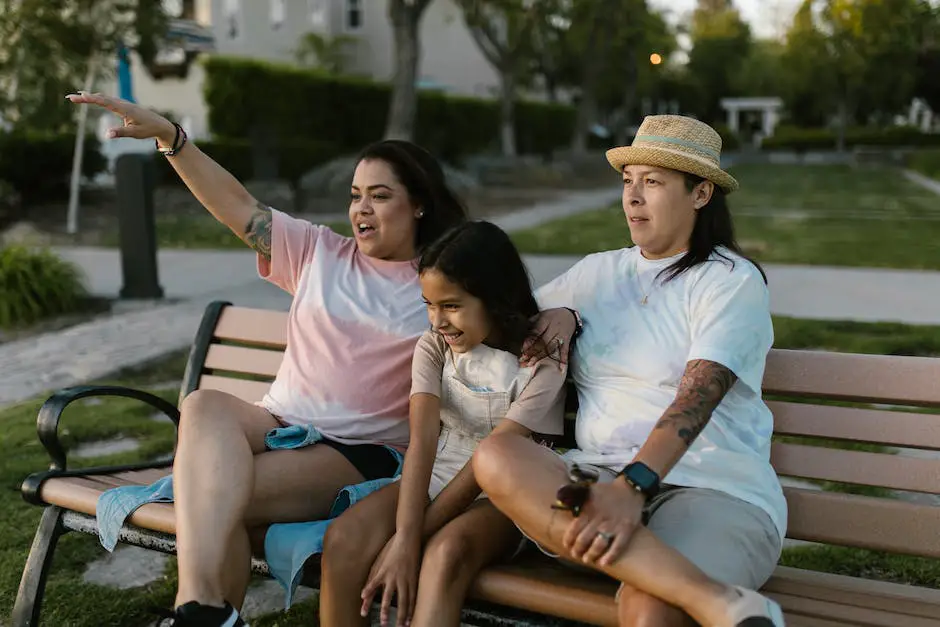Healthy relationships are the bedrock of a fulfilled life. The secret to a thriving relationship is multi-faceted, with the key elements being open communication, trust, empathy, spending quality time together, and resolving conflicts in a healthy manner. As you journey through life together, these pillars not only hold your connections steady but also help them grow stronger over time. This exploration will reveal the intricacies of these crucial relationship aspects and provide practical strategies to aid you in your pursuit of a lasting, fulfilling relationship.
The Importance of Open and Honest Communication
Cultivating Open and Honest Communication: The Cornerstone of Sustainable Relationships
In the beautiful tapestry of raising a family and nurturing a home, open and honest communication forms the cornerstone of all relationships. This is no secret, but often, the question arises: “How can we foster this culture of honesty and transparency?” Let’s unravel some effective tips to trailblaze the path to fostering open and honest dialogue within relationships – a journey that ultimately strengthens the family unit and builds happier, healthier homes.
-
Fostering a Safe Space:
Create an environment where everyone feels comfortable and safe enough to express their feelings honestly. Encourage sharing, whether it’s about a minor annoyance or a deep-rooted issue. Uplifting everyone’s feelings—with no judgment—ensures a candid and relaxed atmosphere.
-
Active Listening:
Listening is an art that requires practice. Being an active listener means not only hearing but understanding what the other person is saying. This involves paying attention, vocal affirmation, and engaging with relevant responses. Active listening fosters trust, respect, and conveys that their feelings and thoughts are valued.
-
Respecting Individuality:
Everyone has unique ways of expressing thoughts and processing emotions. Embrace individual differences and respect the ways in which others communicate. This understanding can help in tailoring communication styles within relationships and eventually contributes to effective conversations.
-
Non-verbal Communication:
Oftentimes, it’s not just about what’s being said, but also about what’s not being said. Body language, tone of voice, and even silences can communicate a lot. Taking the time to observe and interpret these cues can be fundamental in understanding the true feelings of a loved one.
-
Practice Patience:
Communication isn’t always a smooth ride. There could be misunderstandings, disagreements, even conflicts. Patience, in this case, becomes the key that unlocks doors to resolution. It allows time for emotions to settle and better decisions to surface.
-
Expressing Appreciation:
Sharing express appreciation in a relationship can not only brighten a day but also reinforce trust and affection. A simple, heartfelt “Thank You,” or an acknowledgment of a kind deed done, can go a long way in strengthening relationships and ensuring open communication.
-
Communication Workshops and Counselling:
Sometimes, fostering open and honest communication in a relationship requires external assistance. Depending on the situation, attending communication workshops or seeking counselling can be an effective path. These provide scientifically backed techniques to improve communication, resolve conflicts, and encourage mutual understanding.
Remember, there is no one-size-fits-all formula for fostering open and honest communication in relationships. What works for one might not work for another. The important aspect is to keep the conversation flowing, create safe and understanding spaces, and strive towards honesty and transparency in every interaction. Every small effort counts in the larger task of building nurturing and sustainable relationships. After all, the strength of a family resides in the relationships that bind it together.

Building Trust and Emotional Intimacy
Cultivating Trust and Emotional Intimacy in Relationships
In the quest to strengthen the bond within family relationships, the importance of trust and emotional intimacy can’t be overstated. Aiding you in this endeavor, here are some further tips to broaden the scope of understanding, nurture emotional intimacy, and build trust.
- Creating a supportive environment is akin to a two-way street. Everyone in the family must make an effort to understand each other’s viewpoints and be supportive. Language that uplifts and encourages rather than criticizes, facilitates the growth of emotional intimacy. Offer praises for accomplishments, and show understanding during low moments. Each family member needs to recognize that their actions can either foster a supportive atmosphere or damage the relationship’s trust.
- Constructive criticism is vital, yet we often overlook its delivery and timing. Always aim to make your feedback constructive, and avoid blaming or shaming. The right combination of timing, speech, and tone foster openness, encouraging the family to be more receptive and less defensive.
- Consistency is key. Healthy family dynamics don’t happen overnight and require consistent effort from every family member. Consistency builds predictability, which helps foster trust. Everyone should be committed to maintaining a steady pace of open communication, respect, and understanding, offering a safe and trusted space for every individual.
- One golden rule is to honor the principle of reciprocity – simply put, treat others the way you want to be treated. This grand old adage bodes well for forming trust and fostering emotional intimacy. A climate of mutual respect essentially grows from our actions and the way we treat our loved ones.
- Alongside mouth-to-mouth communication, written communication can work wonders. Leaving a sweet note for a loved one or writing a heartfelt letter can be an excellent way to express thoughts that might seem difficult to articulate verbally.
- Finally, engaging in shared experiences is a fantastic way to deepen bonds and establish emotional trust among family members. Engage in activities that you all enjoy, fostering shared memories. Whether it’s a weekly family game night, a regular outing, or merely cooking together, these shared experiences go a long way in cementing trust and emotional intimacy within the family.
Building trust and emotional intimacy in our family relationships might seem challenging, but with patience, consistency, and informed action, it can definitely lead to robust and healthy family dynamics in the long run. At the end of the day, it is about consistency in action, open communication, and the willingness to adapt and understand. So, let’s remind each other of our common love and respect, enabling our family to grow stronger every day.

Photo by shanerounce on Unsplash
The Role of Empathy and Understanding
The Power of Empathy: A Key Pillar in Building Stronger Relationships
Each relationship, regardless if it’s with a spouse, a child, or a friend, is a complex tapestry woven from countless threads of shared experiences, emotions and mutual understanding. Empathy is among the strongest threads. It is important for all of us to understand the power empathy boasts in fostering strong bonds among family members, friends and loved ones and its role in enhancing understanding in relationships.
Consider empathy as an emotional glue that binds people together. When we express empathy, we are not just showing that we understand someone else’s feelings, but we are also validating these emotions and making the other person feel seen, heard, and valued.
Empathy-assisted validation can beautifully soften relational conflict edges. It pacifies damaging accusations, lessens defensive reactions, and brings about constructive discussions. This practice helps foster an atmosphere of mutual respect and emotional safety, allowing both parties to freely express themselves without fear of judgment or rejection.
Expressing empathy leads to decreased family tension and promotes more harmonious interactions. Everyone feels comfortable sharing ideas, thoughts, and feelings, which, in turn, enriches every person’s individual relationships within the family or with a partner.
Feelings of discomfort, loneliness, or sadness often flow from unrecognized or invalidated emotional needs. By acknowledging these emotions through empathy, we can help alleviate these feelings and potentially avert maladaptive behaviors that could potentially hurt relationships.
In parenting, cultivating empathy with children is invaluable. It provides a way for children to understand that their parents or caregivers understand and acknowledge their feelings – a critical aspect in developing self-esteem, emotional intelligence, and strong communication skills. All of which are crucial elements in fostering future healthy relationships.
Furthermore, empathy allows parents to impart essential life values and lessons in a loving, understanding manner. It’s through this empathetic lens that children learn to cope with their emotions, nurture their own empathy to others, and develop a firm foundation for their emotional health and resilience.
In couple relationships, empathy strengthens the bond and deepens intimacy by understanding and sharing feelings that a partner experiences. This sharing and understanding of emotions demonstrates a deep level of trust and commitment, which serves as a firm foundation for stronger, more fulfilling relationships.
Empathy speaks the language of love. By understanding others, validating their feelings, and supporting them emotionally, empathy sets the stage for the wholehearted connection we all seek. The more we practice this emotional skill, the stronger and more fulfilling our relationships become.
Remember, the beauty of empathy is that it is a capacity that can be nurtured and grown. It is a journey that evolves, improves, and strengthens with practice. So let’s continue to cultivate empathy within our homes, our relationships, and within ourselves, creating not just a warmer environment for our loved ones, but enhancing the sense of connection, understanding, and care we impart to the world.
Empathy and understanding aren’t just about bridging gaps, they’re about building bridges that make our relationships stronger, healthier, and happier.

Photo by shanerounce on Unsplash
Prioritizing Quality Time
Harness Quality Time to Fortify Relationships
When looking to forge stronger bonds within our families, one essential method and tactic that’s often overlooked, or rather, assumes a lesser priority, is the investing of quality time. Devoting a suitable amount of dedicated, distraction-free moments to our loved ones, without the constant interruption of our digital world, can usher an indescribable transformation in our relationships that’s worth cherishing.
Embrace unhurried rhythms of life, where easy-going activities nurture heart-warming connections. Get involved in hands-on experiences that are wholesome and bring joy. Plant a garden, build a fort, toss a ball together, or simply sit, chat, and relax together. These seemingly inconsequential tasks can lead to meaningful conversations and moments of bonding that bolster relationships.
Celebrate small victories and milestones to imbue a sense of togetherness. When trying to bake that first loaf of bread or attempting to put up a tent independently for the first time, remember to rejoice in these ordinary but precious wins. The message sent with every high-five and congratulatory hug is that of partnership, acceptance, and camaraderie.
Similarly, create rituals that become a part of your family threads. These can involve anything from Saturday night scary movies to Sunday morning brunches, or perhaps a weeknight evening walk. As these rituals gain significance over time, they become something that everyone looks forward to and cherishes, leading to fortified bonds.
Setting up routines are wonderful, but remember, spontaneity brings its own charm. Surprise picnics on sunny days or late-night stargazing sessions can add that dash of adventure every relationship needs, keeping it fresh and exciting. Just as you would surprise your partner, surprise your kids too. This effort underscores that they are valued and considered, no matter how occupied everyday life can get.
But, what’s paramount amidst all these efforts is being present. Being there for your loved ones, not merely occupying the same space but being truly available for them. From listening to their school day tales to lending a shoulder when they need one, these instances of time investment highlight the importance we place on our relationships, thus strengthening them.
So, while it may seem that setting apart quality time is a simple act, it’s impact can be multi-fold. As with everything worthwhile, it does require constant effort, commitment, and heart. But at the end of the day, the joy of seeing our relationships bloom and strengthen, sure makes it all worth it! Turn off those screens, push away the digital distractions, and tune in to the world of your loved ones. It could be the glue that holds everything together.

Resolving Conflicts Healthily
Embracing Mindfulness in Relationships
Being fully present with your loved ones is key to cultivating healthy and strong relationships. Mindfulness enhances your awareness, allowing you to listen more deeply, respond effectively, and acknowledge your emotions and thoughts without detrimental reactions. It enables you to treasure the simple moments of connection and partake in joint conversations with an attentive attitude. Hence, incorporating mindfulness in daily interactions can be a beautiful method to navigate through potential conflicts while simultaneously strengthening your relationships.
Graceful Conflict Resolution
Not every argument must escalate into a full-blown conflict. There lies an art in addressing disagreements without stirring unnecessary negativity, and this comes with practice and patience. First, it is essential to clearly identify the issue without blame or resentment and approach it with an open mind. Second, take turns to express feelings without interruption. This demonstrates mutual respect and curtails heading down a defensive path. Lastly, always aim for reconciliation over having the final say. Consent to disagree when necessary and try to establish a middle ground where both parties feel validated and affirmed.
Role of Apologies and Forgiveness
Holding onto grudges is a barrier for emotional growth and can act as a significant stumbling block in maintaining healthy relationships. Apologizing when wrong goes a long way in displaying honesty, humility, and empathy. Similarly, practicing forgiveness promotes understanding while dissipating walls of resentment. It’s not just about saying, “I’m sorry,” but also meaning it and putting in efforts to prevent recurrence of the same mistake.
Promoting the concept of ‘We’ over ‘Me’
Nourishing identity within relationships is as important as acknowledging ‘togetherness’. It’s about finding a balance between individual growth and fostering a harmonious relationship. While it’s important to maintain individuality, cherishing the idea of ‘we’ encourages unity, conveying that both parties are on the same team. This mindset is beneficial while addressing conflicts, as it shifts away from any possible blame game to a more resolution-oriented approach.
Careful Use of Humor
Humor can be a saving grace in times of potential conflict. However, it should be used carefully and appropriately. Positive humor can dissolve tension, allow both parties to see the lighter side of things and can potentially deflect an argument. However, it’s crucial to ensure that humor is not being used to avoid significant issues or undermining someone’s feelings.
In conclusion, navigating conflicts within relationships is not about sidestepping disagreements or suppressing feelings. It is about engaging with them in an affirmative yet compassionate manner. It’s about learning, growing, and improving bonds with your loved ones while fostering a peaceful, loving, and supportive environment. Remember, it is the journey that indeed shapes the destination.

Throughout the journey of life, our relationships shape us and our experiences. Each relationship, in turn, demands care, empathy, time, trust, and effective communication for its health and longevity. By incorporating these practical strategies into your relationship, you nurture an environment that inspires mutual growth and substantial bonding. Armed with these skills, you can foster a relationship that is not just enduring but also enriching, providing a foundation on which both partners can flourish.
Writio: Effortlessly Generate Exceptional Content with this AI-powered content writer. This article was crafted by Writio.

